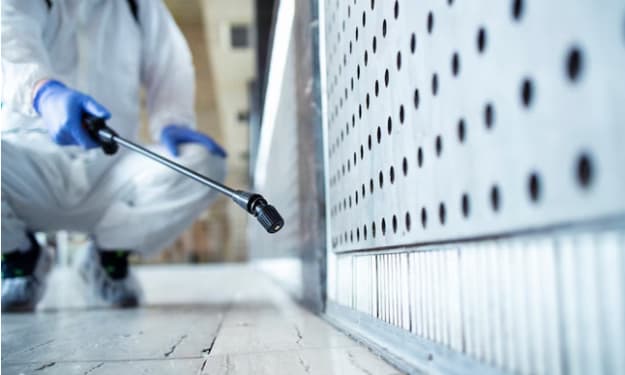Protect your property: Rodent control measures in stourbridge
rodent control measures

Introduction
Rodents are a common nuisance that can cause significant damage to properties in Stourbridge. These small creatures, including rats and mice, have the ability to chew through materials, contaminate food, and spread diseases. It is crucial for property owners to take proactive measures to control and prevent rodent infestations. This article will outline effective rodent control in stourbridge, highlight their importance, and provide answers to frequently asked questions.
Understanding Rodent Behavior
Before implementing rodent control measures, it is essential to understand the behavior of these pests. Rodents are attracted to properties due to the presence of food, water, and shelter. They are excellent climbers, swimmers, and burrowers, allowing them to gain access to various areas. Rats and mice are known to reproduce rapidly, resulting in large infestations if left unchecked.
Signs of Rodent Infestation
Detecting the signs of rodent infestation is crucial for timely intervention. Common indicators include droppings, gnaw marks on walls or furniture, damaged food packaging, greasy rub marks along walls, and the presence of nests or burrows. Unusual sounds, such as scratching noises in walls or ceilings, can also indicate rodent activity.
Prevention Measures
Prevention is key when it comes to rodent control. By implementing the following measures, property owners can reduce the risk of infestation:
a) Seal Entry Points: Inspect the property for any gaps or holes that rodents can use to gain entry. Seal them using materials like steel wool or caulk.
b) Secure Food Storage: Store food in airtight containers made of glass or metal to prevent rodents from accessing it. Avoid leaving pet food out overnight.
c) Maintain Cleanliness: Keep the property clean and free of food debris. Regularly dispose of garbage in sealed bins and clean up spills promptly.
d) Trim Vegetation: Trim trees and bushes near the property to eliminate potential entry points for rodents.
e) Block Access to Water: Fix leaky pipes and ensure that water sources are inaccessible to rodents.
Rodent Control Methods
If a rodent infestation is already present, it is crucial to take immediate action. The following control methods can effectively address the issue:
a) Traps: Traps are a commonly used method for capturing and eliminating rodents. They come in various types, such as snap traps, glue traps, and live traps. Choose the appropriate trap based on the severity of the infestation and local regulations.
b) Rodenticides: These are chemical substances specifically designed to kill rodents. When using rodenticides, it is important to follow the instructions carefully and place them in areas inaccessible to children, pets, and non-target wildlife.
c) Professional Pest Control: In severe infestations or cases where DIY methods are ineffective, hiring a professional pest control service is recommended. Pest control experts have the knowledge, experience, and tools to assess the infestation and provide targeted treatment.
Health Risks Associated with Rodents
Rodents pose significant health risks to humans and pets. They can transmit diseases through their urine, droppings, and bites. Hantavirus, salmonellosis, and leptospirosis are examples of diseases associated with rodents. Additionally, rodent allergens can trigger or worsen respiratory conditions such as asthma.
Frequently Asked Questions (FAQ)
Q1: How do I know if my property has a rodent infestation?
A1: Signs of rodent infestation include droppings, gnaw marks, damaged food packaging, greasy rub marks, nests or burrows, and unusual sounds like scratching noises.
Q2: What are some preventive measures against rodents?
A2: Preventive measures include sealing entry points, securing food storage, maintaining cleanliness, trimming vegetation, and blocking access to water sources.
Q3: What control methods can I use for rodent infestations?
A3: Common control methods include traps (snap, glue, or live traps), rodenticides (follow instructions carefully), and professional pest control services.
Q4: Are rodents a health risk?
A4: Yes, rodents can transmit diseases through their urine, droppings, and bites. They can also trigger or worsen respiratory conditions.
Q5: When should I seek professional pest control services?
A5: It is advisable to seek professional help in severe infestations or when DIY methods have been ineffective.
Conclusion
Protecting your property from rodent infestations is crucial for the safety and well-being of its occupants. By understanding rodent behavior, detecting signs of infestation, implementing preventive measures, and taking prompt action with effective control methods, property owners can minimize the risk of rodent-related damage and health hazards.
About the Creator
Enjoyed the story? Support the Creator.
Subscribe for free to receive all their stories in your feed. You could also pledge your support or give them a one-off tip, letting them know you appreciate their work.





Comments
There are no comments for this story
Be the first to respond and start the conversation.